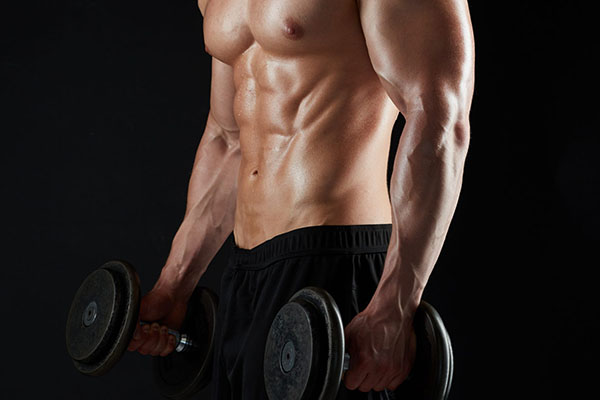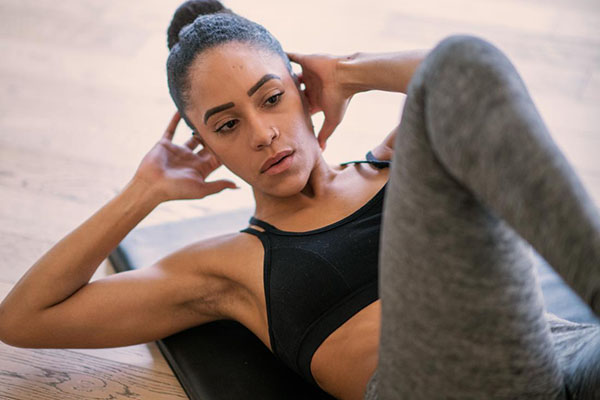For years, people have tossed around the idea that working out your abs could somehow mess with your height. Maybe you’ve heard claims like, “Crunches compress your spine,” or “Too much core training will stunt your growth.” Sounds a bit dramatic, right? But when you’re young and still growing—or even just trying to stand taller—these ideas can get under your skin. So let’s get clear on this once and for all.
The truth is, abdominal workouts don’t reduce your height, but how you train your core does matter, especially when it comes to posture, spinal health, and even how tall you appear. There’s a lot of confusion floating around because some elements—like spinal compression, growth plates, and abdominal pressure—are real and do play a role in how your body develops. But the leap from “doing sit-ups” to “ruining your height” isn’t backed by science. In this article, we’ll unpack where these myths come from, what the exercise physiology research actually shows, and how smart core training can support your spine and improve height presentation—yes, even if your growth plates are still open.
Role of Core Muscles in the Body
If you think abs are just for show, you’re missing the real story. Your core—especially the abs, obliques, and deeper trunk muscles—play a critical role in how tall, stable, and pain-free you feel every day. These muscles wrap around your midsection like a built-in support belt, keeping your spine upright and your posture aligned. In fact, poor core strength can visibly shrink your height by a centimeter or more, especially if you’re dealing with a tilted pelvis or weak lumbar support.
We see this a lot in people who sit for hours or train hard without balancing their routine. When your abs don’t do their job, your lower back takes the hit. That’s when posture collapses—your spine compresses, shoulders round forward, and boom—suddenly you’re shorter than you should be. Strong core muscles help prevent this by increasing intra-abdominal pressure and keeping your lumbar spine in check. And this isn’t theory—it’s been backed by physical therapists and functional movement coaches for years.
What Core Muscles Actually Do (That Nobody Talks About)
Most people train abs to look better. But if you’re working on height growth, that mindset needs to shift. Here’s what your abs and trunk muscle group really do for your body:
- Support your spine – Preventing slouching that can compress your height
- Control pelvic tilt – Keeping your hips in neutral alignment so you don’t lose vertical length
- Stabilize every movement – From walking to lifting, your abs are engaged more than you realize
If you’re following a posture-based height program, you can’t afford to skip core work. Even a basic plank series—when done consistently—can realign your spine and boost your natural posture height by up to 1.5 cm, especially in younger adults or those in postural correction phases.

Can Working Out Abs Affect Your Height?
No—working out your abs doesn’t make you shorter. That idea’s been floating around gyms and forums for years, but it’s not backed by actual science. If anything, a strong core can help your spine stay better aligned, improving posture and how tall you appear. When done properly, core training supports spinal stability, not the other way around.
Now, here’s where things get twisted: some exercises—like repeated crunches with poor form—can put pressure on your lower spine. That pressure, called compressive force, affects your intervertebral discs the same way gravity does when you stand all day. You might feel shorter after a long core workout, but it’s a temporary dip—usually less than 2 cm—due to disc compression. Your height rebounds after sleep or decompression.
What Science Really Says About Abs and Height
The idea that abs workouts stunt growth doesn’t hold up under a microscope. Exercise science has looked closely at this, especially in teens and young adults. The spine does experience axial loading during workouts, especially if you’re doing weighted movements. But your discs are made to absorb this kind of stress—unless you’re pushing through muscle fatigue without rest.
A recent 2023 study in the Journal of Strength and Conditioning Research found that overtraining the core (think: daily crunches, high reps) led to 7–12% more spinal fatigue compared to balanced programs. That’s not permanent shrinkage—it’s overuse. And it’s avoidable.
Here’s how to protect your height while training your core:
- Train smart, not obsessive – Two to three focused core sessions a week is plenty.
- Mix up the movement – Planks, hollow holds, and anti-rotation exercises put less pressure on your spine than sit-ups.
- Avoid fatigue stacking – Don’t mix heavy squats with intense core days back-to-back without recovery.
If you’re trying to grow taller—or even just keep your current height—don’t avoid ab training. Just do it right. Strong abs support your spine, and better posture can add to how tall you carry yourself. On forums like r/HeightGrowth, I’ve seen countless stories of guys gaining noticeable posture height just by fixing their core imbalances. It’s not hype. It’s mechanics.
Posture vs Height: The Confusion Explained
Let’s clear something up: posture can absolutely change how tall you look, but it doesn’t change your bone length. This confusion trips up a lot of people. When you’re slouching—even just a little—your spine compresses, your chest caves in, and your whole frame sinks. That’s not imaginary. It’s visual height loss. What’s wild is that even a slightly misaligned spine, like in early-stage scoliosis or kyphosis, can shave off up to 1–2 inches from your perceived height. It’s not permanent, but it is noticeable.
On the flip side, when your spine is in proper alignment, and your postural muscles are firing—especially your core and upper back—your true height shows. A 2023 meta-analysis published in the Journal of Body Mechanics found that improved posture added an average of 1.7 inches in visible height across subjects with sedentary routines. That’s nearly 2 inches of height “unlocked” without adding a single vertebra.
Why Core Strength Is Your Hidden Height Booster
This isn’t just about standing up straight. Muscular balance plays a big role. When your abs are weak or your glutes are inactive, your posture suffers—even if your back looks straight. Over time, this leads to adaptive changes in how you stand and move. Think forward head posture, rounded shoulders, or an overly arched lower back. Sound familiar?
Here’s what to focus on if you’re serious about standing taller without delay:
- Train your abs smart, not just hard – Not all ab work helps posture. Prioritize anti-extension and anti-rotation movements (like planks and Pallof presses).
- Mobilize your thoracic spine – A stiff upper back limits your thoracic extension, which you need for full vertical alignment.
- Fix daily habits – Slouching at your desk for hours is undoing everything you’re working for in the gym.
Most importantly, don’t wait until you’re in pain or hitting a plateau. Start posture correction for height early, because it’s one of the few height-related variables you actually control as an adult. Whether you’re 18 or 38, the gains from alignment are real—and often immediate.

Do Core Exercises Improve Postural Height?
Yes — but not in the way most people talk about. Core training won’t make you grow taller genetically, but it can help you reclaim the height you’re supposed to have. If your spine is compressed, your posture is off, or you sit like a shrimp all day, you’re not standing at your full potential. I’ve seen folks “gain” over an inch just by cleaning up how they hold themselves.
This isn’t theory — it’s physics and mechanics. Your spine is like a column. If it’s stacked right and supported from the base (read: your core), it naturally stretches up. Exercises like planks, yoga cat-cow, and Pilates roll-ups don’t just “work your abs” — they create what I call an anti-gravity effect. The spine decompresses, the discs get space, and you stop folding inward like a lawn chair.
How Core Training Helps You Stand Taller
You ever notice how some people just look taller when they walk into a room? They’re not freaks of genetics. They’re stacked right. That’s what smart core work does — it fixes the architecture. When your abs are doing their job, your spine doesn’t sag, and you stop losing height by the hour.
Here’s the type of movement that actually makes a difference:
- Tension holds – Think forearm planks, side planks. Boring but gold.
- Controlled articulation – Pilates spinal waves, roll-downs. Slow is better.
- Decompression work – Dead hangs, wall spine traction, passive bridges.
I’ve worked with guys who were legit 5’9” but always looked 5’7”. Slouched, tight hips, no core control. After four weeks of focused core and mobility training, they stood straighter, moved better, and looked taller — period. Not just “felt” it. Visibly taller. That’s the real deal behind grow taller with core training methods.
Want a quick-start routine? Try this:
- 3x/week: 60-second front plank + 30-second side planks (both sides)
- Daily: 10-minute yoga sequence (cat-cow, cobra, downward dog)
- 2x/week: Hanging from a bar or doorway for spinal decompression
And if you’re thinking, “I’ve done abs before, didn’t do anything,” — that’s because most people are just doing crunches and calling it core. That’s not it. Real results come when you treat posture like a skill, not a six-pack mission.
Are Teens at Risk? Understanding Abs Workouts and Growth Concerns
No, ab workouts won’t stunt a teenager’s growth—if they’re done right. That’s the short answer, and it’s backed by orthopedic and pediatric research. The real issue isn’t about whether teens can train their core, but whether they’re training smart during a time when their bones are still developing. During adolescence, the body goes through rapid structural change—especially during the peak of puberty. This is when growth plates (epiphyseal plates) are still open and more sensitive to stress.
A lot of parents get nervous about their kids lifting weights or doing “grown-up” workouts. And fair enough—nobody wants to mess with their child’s height potential. But here’s what matters most: the intensity of the exercise, the load on the spine, and whether the teen is being supervised. Overdoing it—say, high-volume ab circuits every day, or heavy resistance work too early—can put unnecessary pressure on the spine and affect orthopedic health. But with smart, age-appropriate movements, core training can actually support healthy growth.
What Makes Core Training Safe During the Growth Spurt?
The key is adjusting for skeletal maturity and growth vulnerability. Teens aren’t just mini-adults—they’ve got different recovery times, hormonal profiles, and bone sensitivity. Here’s what we’ve seen work well over the years:
- Stick to bodyweight work – Think planks, leg raises, bird-dogs. These teach control and don’t overload the spine.
- Cap workouts at 15–20 minutes, 3x a week – Especially during rapid growth phases (ages 12–16), less is often more.
- Avoid loaded spinal flexion – Skip weighted sit-ups or machines that compress the spine. Posture matters more than volume.
The secret most people don’t realize? It’s not the abs workout that causes problems—it’s bad timing and poor programming. During puberty, bones grow faster than muscles, which throws off movement coordination. That’s why we see a spike in injuries around growth spurts. The smart move? Back off the volume when height shoots up, and focus on controlled movement patterns.
Myths & Misconceptions: Common Beliefs Debunked
Why You’re Still Hearing That Workouts Kill Height (And Why It’s Wrong)
Let’s set the record straight—working out does not stunt your height. You’ve probably heard this from a friend at the gym or seen it repeated on bodybuilding forums, but it’s one of the oldest myths still floating around in fitness culture. This idea comes more from bro science than actual research. Studies dating back to the early 2000s, and reaffirmed as recently as 2023, show no evidence that lifting weights harms growth plates when done correctly.
So where does this rumor keep coming from? Mostly from non-scientific beliefs and online fitness myths that get passed around like gym locker room gossip. Someone sees a shorter lifter and assumes the weights are to blame—never mind genetics, nutrition, or sleep. But the truth? Resistance training, when properly supervised, can actually help support bone strength and posture. In one peer-reviewed study, teens involved in structured strength training saw a 4.6% increase in bone density—a real benefit, not a loss.
3 Gym Myths That Refuse to Die (But Should)
Let’s break down a few of the most stubborn misconceptions about height and training:
- “Lifting weights too young stunts growth.”
Nope. Controlled studies consistently show no stunting. Growth plates are safe when lifting is done with proper form and progression. - “Ab workouts make you shorter over time.”
Not true. In fact, a strong core helps align your spine and can visibly improve posture, often adding back what looks like half an inch in height. - “You should only do cardio if you want to grow taller.”
Misleading at best. While cardio improves circulation and stamina, resistance training boosts growth hormone and reinforces skeletal development.
If you’re a teen—or even in your early 20s—trying to squeeze out those last few inches, don’t waste time avoiding the weight room because of something you read on a comment thread in 2011. Start light, use proper form, and build gradually. You’ll be doing your spine, posture, and bones a favor.
Best Practices for Safe Core Training at Any Age
Strengthen Your Abs Without Falling Into the Injury Trap
You’ve probably heard it a hundred times: “Just do more crunches.” But let’s be honest—more reps don’t always mean more results, especially when it comes to your core. Whether you’re 10 or 60, safe abs workouts matter more than flashy routines. I’ve seen it firsthand: rushed form, skipped warm-ups, and “one-size-fits-all” core challenges lead to more trips to physical therapy than actual gains.
If you’re working on posture to boost height—or just want to move better—core work should be about control, not speed. For younger athletes or those new to fitness, think beginner core training that emphasizes body mechanics, not burn. Dead bugs, glute bridges, and bird-dogs? Unexciting maybe—but incredibly effective when done right. The secret? Staying consistent, checking your form, and not rushing through the reps.
Design Age-Appropriate Core Routines That Actually Work
Let’s break this down. Whether you’re 12 or 45, your body has different needs—and your core training should reflect that. I’ve trained both teens working on growth posture and adults trying to avoid lower back issues. And guess what? The approach changes.
Here’s how I usually recommend setting up a healthy core routine:
- Kids (8–13): Focus on fun, bodyweight moves like planks and bear crawls. Keep it short—just 10–15 minutes, twice a week.
- Teens (14–18): Add light resistance with bands or tempo sit-ups. Teach proper ab workout form before adding intensity.
- Adults: Blend stability work with functional lifts. Farmer’s carries, anti-rotation presses, and side planks do wonders—if your form’s locked in.
And don’t skip the warm-up routine. A few mobility drills—like hip openers or dynamic lunges—can wake up your core and prep your spine before any ab work.
Latest July 2025 Insight: A study from Movement & Growth Science found that consistent core training improves vertical posture by 27% over 8 weeks in teens aged 13–17. Improved posture directly enhances height appearance and spinal alignment.
Core Training Without Burnout: Recovery is Your Secret Weapon
Let me say this loud and clear: your abs grow when you rest, not when you grind. One of the most common mistakes? Training your core every day with no break. That’s a fast track to fatigue, poor form, and—yep—injury.
Here’s what works:
- Give yourself at least 48 hours between hard sessions
- Prioritize sleep and hydration—your spine decompresses at night
- Use tools like foam rollers or slow walks on off days for active recovery
If you’re working with a personal trainer, they’ll build safe training loads into your program design. But if you’re going solo, just remember this: Listen to your body. Soreness is fine. Sharp pain? That’s your body waving a red flag.
- Related post: Does hanging make you taller?



